WALKING THE GREEN TRAIL
EMPOWERING LATINE COMMUNITIES IN ENVIRONMENTAL EDUCATION AND ACTION
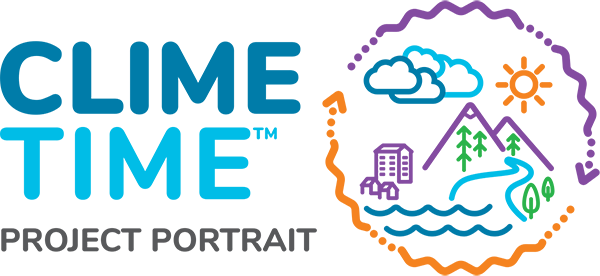
Overview
As part of the Community Education in Action program, Nosotros En Naturaleza (NEN) received a mini-grant and mentorship to support their efforts in creating a community-based learning series. NEN focuses on connecting Latine and other BIPOC communities with nature by addressing barriers to outdoor access (phenomenon known as the “nature gap”) and raising environmental awareness. Through their cohort program, participants gain tools and knowledge to care for the environment, while honoring Indigenous lands and promoting environmental stewardship.
What We Did
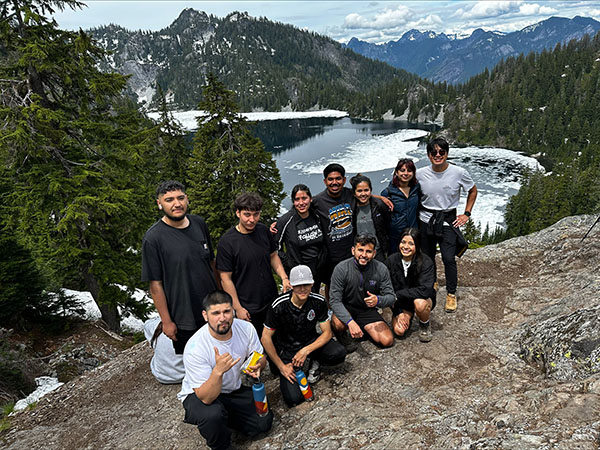 Nosotros en Naturaleza completed 12 community hikes across Washington State. During the first 6 hikes, we were joined by field and research specialist Vivi, who provided a deeper understanding of the land we explored. Throughout the hikes, she acknowledged the land and shared important insights about its history, ecosystems, and significance. She also designed a curriculum to make each hike an interactive learning experience, including identifying local plants and trees, discussing the history of the trails, and leading icebreakers that reinforced the environmental knowledge we had been building throughout the program.
Nosotros en Naturaleza completed 12 community hikes across Washington State. During the first 6 hikes, we were joined by field and research specialist Vivi, who provided a deeper understanding of the land we explored. Throughout the hikes, she acknowledged the land and shared important insights about its history, ecosystems, and significance. She also designed a curriculum to make each hike an interactive learning experience, including identifying local plants and trees, discussing the history of the trails, and leading icebreakers that reinforced the environmental knowledge we had been building throughout the program.
Beyond the hikes, we organized a series of events to help our cohort engage with climate issues in meaningful ways. We partnered with organizations like WA Vámonos to provide hands-on learning experiences, where members explored sustainable gardening and even grew their own food by making mushroom buckets. We are always looking to collaborate with community leaders and educators who share our vision. For example, we worked with Maria P., an environmental justice educator, who taught us how to practice sustainability using what we already have. The first part of the workshop was a presentation introducing environmental justice, and the second was a hands-on activity where participants transformed old t-shirts into reusable tote bags, showing that sustainability can be both creative and accessible.
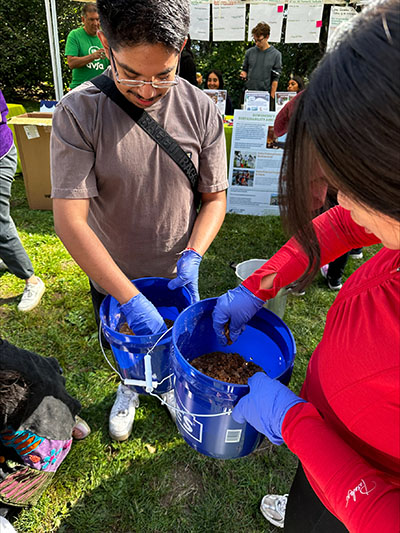 As a way to encourage a personal connection with nature, we launched the Disposable Camera Project. Each participant received a camera a
As a way to encourage a personal connection with nature, we launched the Disposable Camera Project. Each participant received a camera a
nd was encouraged to slow down, observe, and capture moments that stood out to them. Whether it was a tree stump, a river, or a shared moment with friends, this project helped them document their journey and see nature through their own lens.
What We Learned
For many participants in our cohort, environmentalism is rooted in community and cultural values. Coming from collectivist backgrounds, they see climate issues as deeply personal, impacting their families and neighborhoods. On hikes and outdoor activities, they quickly noticed the lack of BIPOC representation, which for some was a new realization, while for others, a familiar reality. This program allowed them to reclaim space in nature, affirming that the outdoors is for everyone. Many also recognized that their communities have long practiced sustainable habits—such as recycling, upcycling, and conserving resources—despite these efforts often being excluded from mainstream definitions of environmentalism.
Our events created welcoming spaces for learning, sharing, and connection, especially among BIPOC youth. Workshops like making reusable tote bags or growing mushrooms in buckets helped validate participants’ lived experiences as acts of environmentalism. Engaging with professionals in sustainability-related careers showed them that the values they grew up with could lead to meaningful work. These gatherings fostered a sense of belonging and representation, allowing participants to see themselves reflected in both environmental spaces and leadership roles, often for the first time.
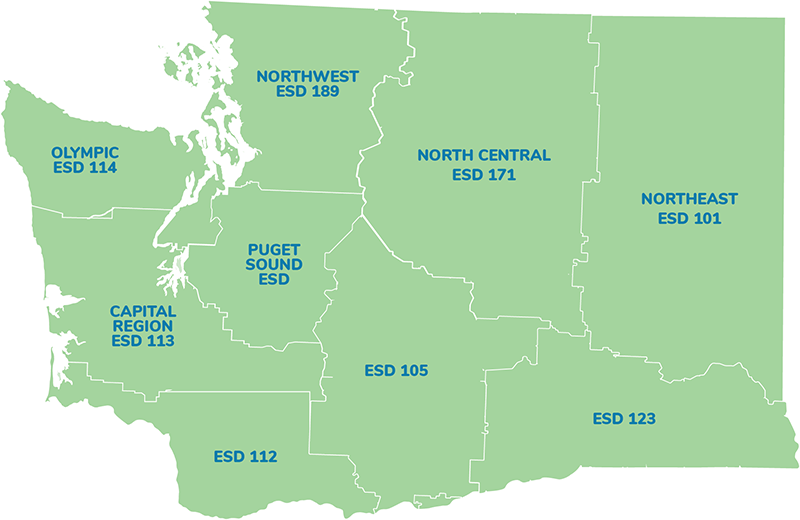
Project Reach
Educators
Hikes
Students in a cohort
Reached out in community events
Project Partners
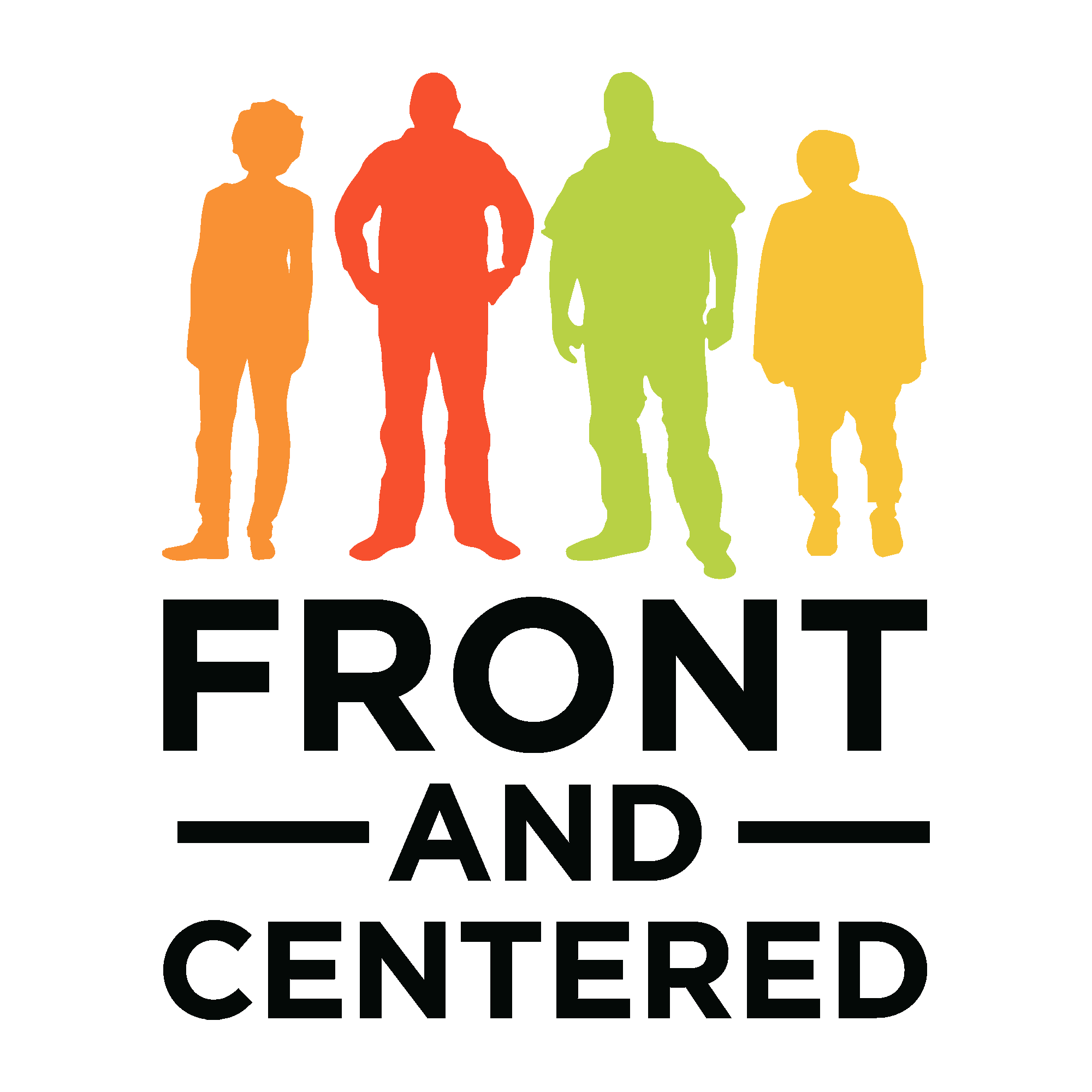
Feedback
“I’ve always been interested in exploring the outdoors but never knew where to start. Nosotros en Naturaleza exposed me to a world of Latinos exploring and caring for the outdoors. It was especially evident at this event because different community members got together to share their unique connection to nature. Getting to take one of the mushroom buckets was especially fun for me. I’ve always wanted to have my own garden, but living in an apartment in Seattle, it just didn’t seem feasible. The mushroom bucket showed me that it was possible to have some sort of garden when I thought it wasn’t.”
Contact
For more information contact:
Isabel Carrera Zamanillo
Community Education Coordinator
isabel@frontandcentered.org | 360.218.4130
Front & Centered
frontandcentered.org | 206.487.4303
2800 1st Avenue, Suite 201
Seattle, Wa 98121
